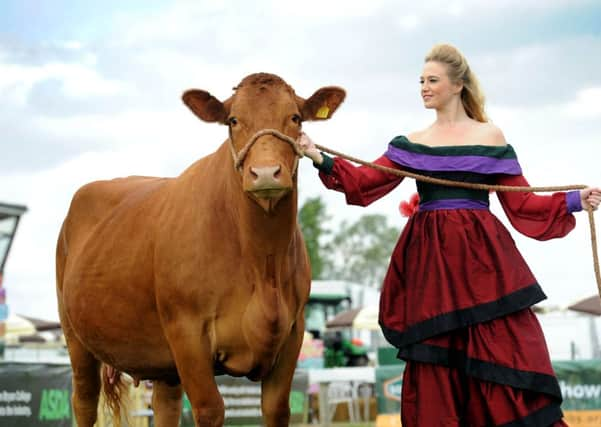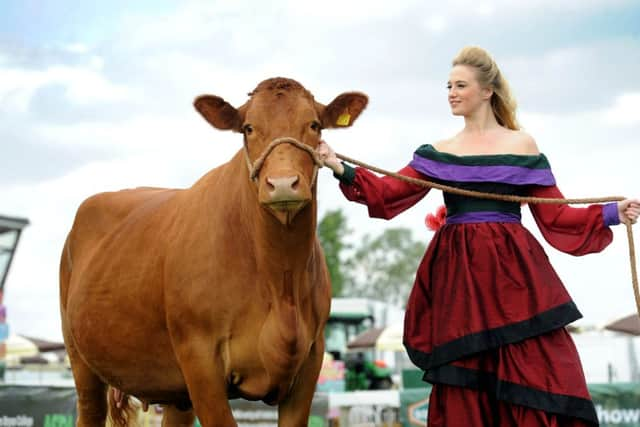Farmers paying the price of beef crisis


Some farmers are haemorrhaging £200 on every animal they produce because the supply of British beef is outstripping demand from shoppers, with Tesco pointing to the “cost price” of British beef having nearly doubled in four years.
The National Farmers’ Union (NFU) blames the perilous position of producers on retailers for failing to clearly promote British beef over cheaper imports, and processors for changing specifications of carcasses overnight, bringing financial penalties for those fall short.
Advertisement
Hide AdAdvertisement
Hide AdThe NFU is adamant that a voluntary code of conduct is now needed and Defra has confirmed that the British Meat Processors Association (BMPA) will hold talks with the NFU this summer to work towards establishing a code.


Nonetheless, retailers will be pressed to respond to the beef crisis by the NFU at the Great Yorkshire Show today. Farmgate prices for British beef have fallen by more than 60p per kg in the last year while its retail price has risen by more than 46p per kg. The gap between the two is now £1.20 per kg more than it was in 2007, the NFU said.
Meurig Raymond, the NFU’s president, said: “Not only are we seeing large volumes of beef being imported, most notably from Ireland, but retailers are doing very little to help consumers differentiate between British and Irish in the shops.”
In-store tactics are misleading, he said, with products from both countries often stocked side by side on the same shelves.
Advertisement
Hide AdAdvertisement
Hide Ad“What’s more, where we are seeing beef promoted with lower prices, this is almost exclusively on mince – not prime cuts,” Mr Raymond said.
The NFU wants British beef to be promoted by retailers wherever possible and clearly using the Red Tractor quality mark to help consumers identify British products on the shelves.
Andrew Opie, director of food and sustainability at the British Retail Consortium, said retailers have been investing their margins in billions of pounds of promotions which consumers are benefiting from.
“We don’t understand the NFU’s comments,” he said. “As retailers are the only food companies labelling beef processed products as British, they are making it as clear as possible for customers to choose British and would not want to compromise that on the shelf.”
Advertisement
Hide AdAdvertisement
Hide AdA spokesperson for Tesco said: “We want to see a sustainable beef sector and we know that farmgate prices this year have impacted on farmers’ confidence. But it’s important to understand the wider context – the cost price of British beef has nearly doubled over the past four years, making it a much more expensive meat for our customers and leading some to switch to cheaper proteins.
“Clearly this is a challenge for us and our suppliers, and we must work together to grow demand not just production.”
The NFU and BMPA are expected to report their progress towards agreeing a code of conduct which will deliver a fairer deal for producers to Defra in the autumn.